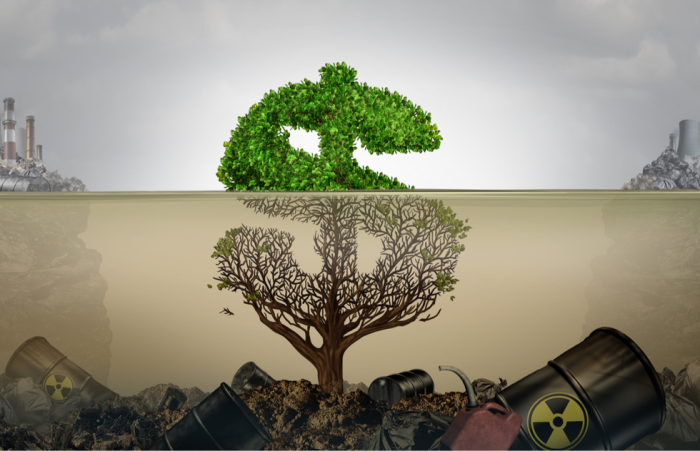Have you observed lately that we are reading some words such as “Vegan”, “Eco-friendly”, Cruelty-free”, “Organic” on our daily use products more than ever. Though it should not be surprising given the fact that our planet is going through the climate emergency and humans need a shift in their production and consumption patterns but is it really happening or this is merely “Green Washing?”
What is Green Washing?
The term “Green Washing” is not that new as it has its origins back in the 20th century. Jay Westerveld, an environmentalist coined this term in 1986 when he published an article about the hotels that were asking customers to reuse the towels in order to conserve water. In reality, hospitality sector was not taking any concrete actions on other significant environmental issues and reuse of towels was no more than a gimmick to save costs and project themselves as Eco-friendly.
“Green washing is merely the claim of companies about sustainability by using the misleading, false, or less information in order to veil their poor environmental performance and inadequate eco-friendly practices.”
Why it has become popular?
The most obvious reason is people being conscious about the lifecycle and environmental impact of the products especially after COVID pandemic. Nowadays, the question is not only about the biodegradability of a product, it is also about procurement of raw materials, transportation, emissions during manufacturing, involvement of animals, packaging, and Corporate Social Responsibility of the business houses. As per the survey of Nielsen Media Group, 72% of consumers are willing to pay more for sustainable products and people are concerned about climate change as well as use of plastics in packaging. Profit minting companies are under the pressure of being accountable to their loyal consumers and without actually putting more efforts, they have found shelter under the canopy of “Greenwashing.”
Some classic Examples of Greenwashing
McDonald’s started a campaign in 2019 to replace all plastic straws with recyclable paper straws and it was hailed for its efforts towards sustainability and reducing plastic pollution. But it was later found that neither newly introduced straws were easily recyclable nor the procurement of raw materials for the same was sustainable.
Fast Fashion Clothing brand H&M was called out by “Changing Markets Foundation” in 2021 as 96% of their claims about sustainability were false. Green labels, words like conscious and 100% organic cotton does not actually live up to the meaning and we need to do ourselves and environment a favour by adopting slow fashion.
A California based beauty brand, Lilly Cosmetics was selling its mink eyelashes claiming it to be cruelty-free. Though it removed the claim later on after a campaign by PETA where latter unveiled the inhumane treatment of animals in fur farms.
The fact is that there are numerous examples of greenwashing where companies are disclosing half the information about the ingredients of product or lifecycle of a product from production house to the shelf. Big business houses have highly developed technologies and effective campaigns to create misconception in the minds of consumers whereas small businesses are taking the help of buzz words to make their products look sustainable.
What could be the possible solutions?
Public around the world is aware about the climate change, global warming, as well as environmental pollution but awareness is not enough until the actions are made. Environmental activists, research groups and journalists can play their part of digging the information about the companies that are practising greenwashing as people do not have enough time to research about the sustainability claims of a company. Technology can play its part by developing software that can calculate the environmental impact of a business by logging in certain credentials and this can be helpful to consumers in making environmentally sound choices.
Common words related to sustainability such as “Eco-friendly”, “Sustainable”, “Clean Beauty” are merely marketing terms and not defined by legislation. People are concerned about environment but strong legislation at national and International level needs to be developed to handle this giant of greenwashing. Conducting the summits and making commitments will only work if the commitments made are achieved with strong legislation and execution at the ground level.
References:










I constantly spent my half an hour to read this website’s articles every day along with a cup of coffee.